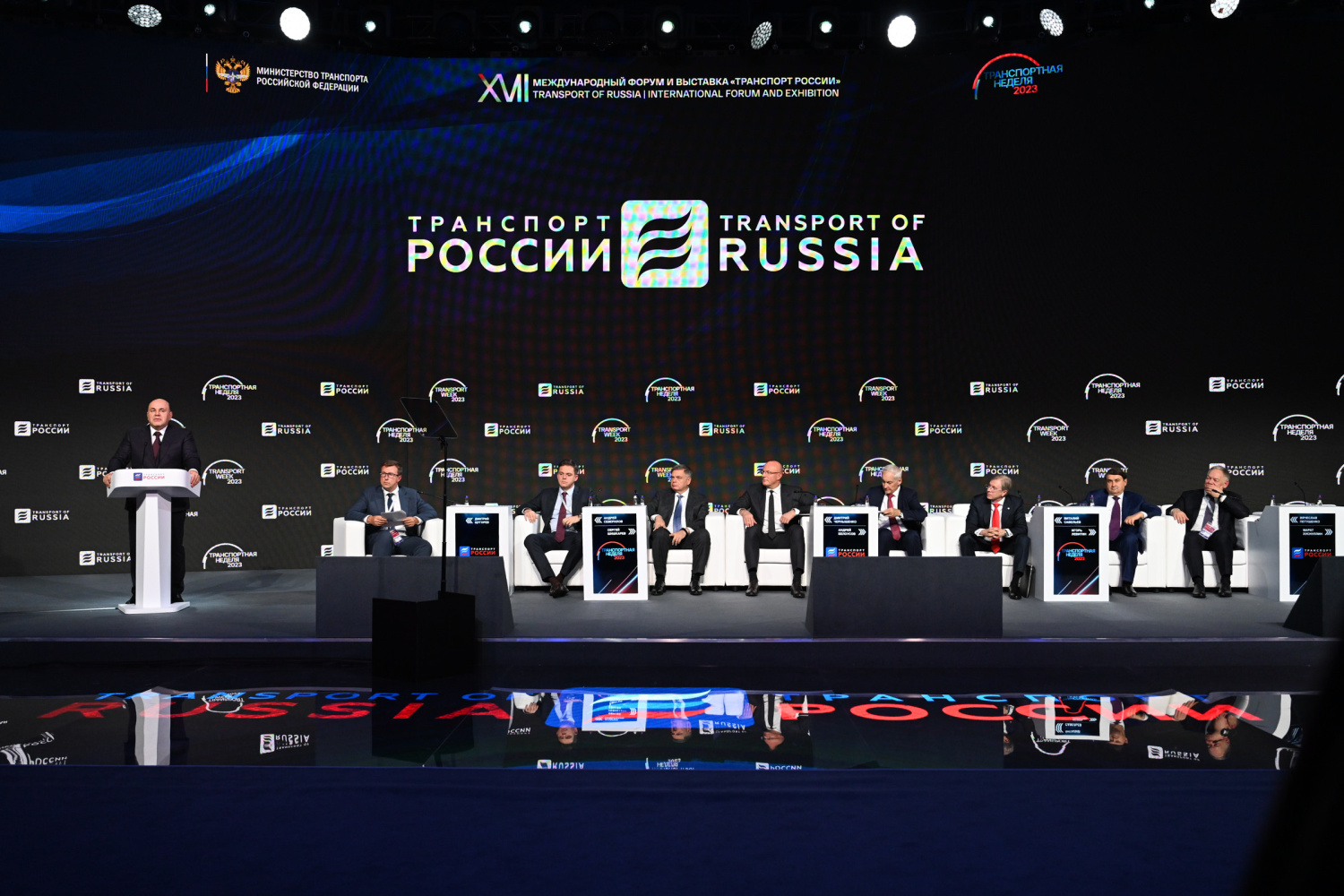
A key event in the calendar of the Transport of Russia Forum focused on new transport economics
On November 15th, the second day of proceedings of the 17th International Forum and Exhibition “Transport of Russia”, the event switched to its principal format, a plenary discussion Russia 2035: on the Way to New Transport Economics.
The panel members were set to work out how to ensure that, in a new polycentric world, the growth strategy launched for the transportation industry remains stable and the industry itself maintains its technological sovereignty, breaks out of its import dependence, and develops steadily. Attention was also focused on pressing challenges, industry-specific priorities under Russia 2035, and logistics for new directions of foreign trade.
The event was moderated by Dmitry Shchugorev, editor-in-chief for the Moscow 24 TV channel. First came an address from Igor Levitin, Aide to the President of the Russian Federation and Secretary of the State Council of the Russian Federation. He recited an address by Vladimir Putin, President of the Russian Federation, in which the President noted as follows: “The transportation industry plays a role that is of systemic importance; it contributes to the development of the economy and of the social sector, improves the quality of life of people, and helps implement sought-for projects in Russia’s regions.”
Mikhail Mishustin, Chairperson of the Government of the Russian Federation, stressed the following points in his presentation: “Despite the challenges imposed by sanctions, the industry is moving forward at a fast pace and ensures reliable supply of all the products and services required by the industrial sector, the business sector, and, most importantly, our people, as well as provides stable deliveries of products exported by Russian companies to foreign countries.” Andrey Belousov, First Deputy Chairperson of the Government of the Russian Federation, agreed with the Chairperson’s words and added, “Today, the objective of breaking through the transport blockade can essentially be taken off the agenda and replaced by a development objective. The figures speak for themselves. Talking about the three transport corridors, the Eastern one, the one headed for the Sea of Azov / Black Sea basin, and the North-South corridor, well, the amount of goods we will be able to move through them is about to set an absolute record reaching 500 million tonnes.”
Dmitry Chernyshenko, Deputy Chairperson of the Government of the Russian Federation, spoke about digitalization in the transportation industry and reminded the audience that the industry-specific digital transformation strategy has been upd ated and supplemented by a project aimed at ensuring information security on the premises of critical facilities forming the information infrastructure.
Marat Khusnullin, Deputy Chairperson of the Government of the Russian Federation, drew the meeting’s attention to the goals se t by the President: in 2024, 85% of the country’s agglomerations must upgrade their common road networks to reach standard availability levels by 85% and must bring 50% of the entire regional network into a condition required by standards.
Vitaly Savelyev, Minister of Transport of the Russian Federation, gave a detailed account of the development plans and promising projects at hand for each focus area in the transportation industry. According to the Minister, the country’s transportation complex is currently demonstrating absolutely positive development trends across all avenues.
Igor Levitin cited some positive statistics. He said that, over three years, Russia has built 7,000 km or federal roads but expressed concern that about the reduced quality of maintenance of such roads going from 85% in 2020 down to 73% in 2023.
More good news came from Vyacheslav Petushenko, Chairperson of the Executive Board of Russian Highways (State Company). He pointed out that the volume of cargo shipments across the country has increased by 14% this year and that the passenger car segment was showing an increased percentage of road users traveling as tourists.
Aleksey Tsydenov, Chairperson of the transportation focus area of the State Council of the Russian Federation and the head of the Republic of Buryatia, thanked the Government for the programs which are already being implemented, viz, 1242, Flat Rate, and the program for Far-Eastern companies, and expressed an opinion that, while they are working spectacularly well, the objective of developing intra-regional transportation links still remains open.
Sergey Shishkarev, Chairperson of the Board of Directors of Delo Group, shared his vision of the year of 2035. He expressed hope that, by that time, Russia would have transformed from a country of potential into a country of opportunities made real.
Andrey Severilov, Chairperson of the Board of Directors of FESCO Transportation Group, spoke about the company’s plans for the next few years. His opinion was that a key objective faced by the Government and by logistics professionals was to open new routes, markets, and regions.
The plenary discussion was closed by Marat Khusnullin. According to him, competition is a driver for progress, so the task at hand is to maximize competition and the number of competitors involved, in the transportation market as well as in others.
For further information, please contact the Transport Week Press Office at media@leadercongress.ru
